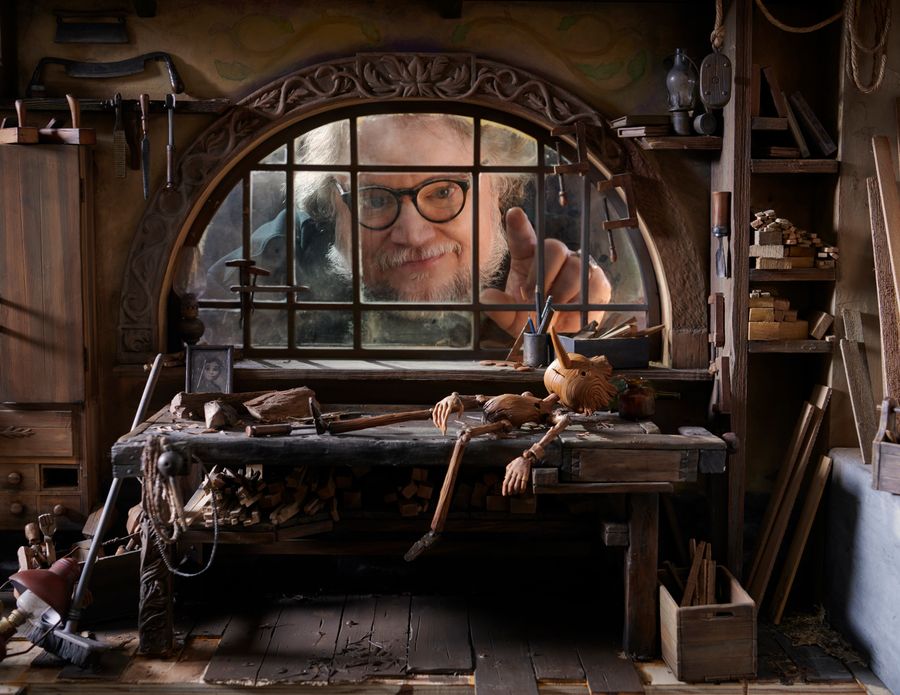As one of the most popular children’s stories of all time, the story of the wooden boy who yearns to be mortal was created way back in 1883 by Carlo Collodi and has since been retold countless times, most notably by Disney in 1940, and again in 2022. Though where Disney has repeatedly mishandled the property, Mexican filmmaker Guillermo del Toro has given the tale justice in his recent release for Netflix.
Sucking the colour of Disney’s version without draining the vibrancy, Del Toro’s story is set in an authentic representation of 1930s Fascist Italy, with the filmmaker refusing to shy away from the atrocities of time and place. After establishing the gorgeous village in which the story is set, the director is quick to print his gothic tone, draping propaganda of Benito Mussolini over the spritely exterior of the town, which slowly loses its vibrant energy with every passing day.
It’s the perfect backdrop for the creation of Pinocchio himself, who is banged and crushed together from twisted metal and wood carved with wrath by a drunken mourning father named Geppetto (David Bradley). Much like his Oscar-winning fairy tale The Shape of Water from 2017, Pinocchio dabbles with the same curiosity to find beauty in tragedy, with the wooden boy being brought to life by a dazzling azure sprite who visits from an ethereal plain.
The Wood Sprite, as she is formally known, is voiced by the ever-melodious Tilda Swinton, and represents just one of several inspiring creations in Del Toro’s extraordinary world where dreams and the sharp bite of reality co-exist. This becomes all too real for the titular puppet when he is approached by Christoph Waltz’s theatrical Count Volpe, a spiky man with a nose as treacherous as Pinocchio’s, who tempts him away from school and to a travelling show of frivolous joys.
Typically for Del Toro, this leads Pinocchio down a far darker road than previous iterations of the story, as he is introduced to concepts of exploitation, hatred and war, as he is swept up in the bleak horrors of fascist Italy in the midst of war. It’s profound to see a children’s film tackle such themes with such efficacy, but this is no surprise from Del Toro, who treats his material like one of Aesop’s fables with an added dose of animated wizardry.
Bringing fantastical beasts and marvellous lands to life with the conviction of a rousing ringmaster, whilst the energy of the film’s seamless stop-motion is difficult to ignore, it is the profound way in which it tackles the source material that sets it apart from any other iteration, and into a whole world of its own. Juggling the perfection of imperfection as well as the weighty matter of life and death, Netflix’s version of Pinocchio reaches for the stars, unafraid of flying a little too close to the sun.
Re-telling a proficient story of Pinocchio is an impressive feat, but not an extraordinary one, but Del Toro so lavishly paints the story with his own brush that he makes it distinctively new. It’s a powerful, meaningful tale bulging with substance that is delicately and lovingly crafted by the hands of a master cinematic magician.
